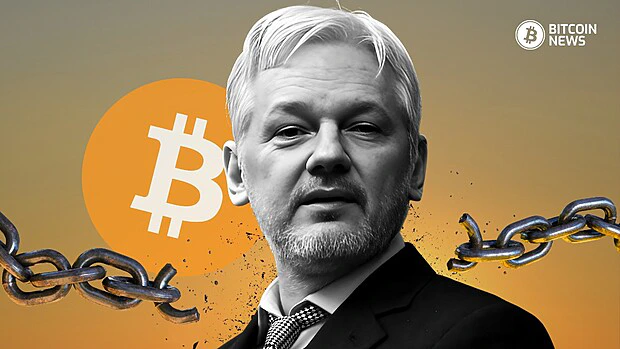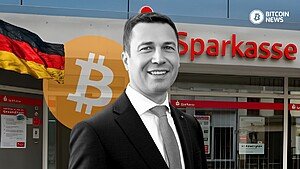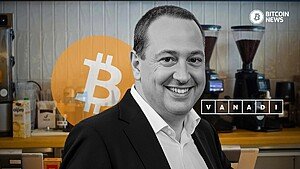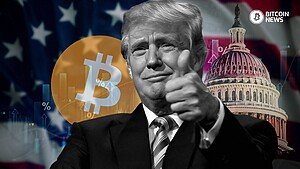Julian Assange, the founder of WikiLeaks, has been at the center of global attention for over a decade. Known for publishing classified documents that revealed governmental secrets, Assange has faced numerous legal battles, including a prolonged fight against extradition to the United States.
After years of confinement, Assange is now a free man, thanks to a generous donation in bitcoin that covered the costs of his return home to Australia.
Julian Assange’s journey began in 2010 when WikiLeaks published a series of classified U.S. military and diplomatic documents.
This led to a swift backlash from various governments, culminating in charges under the U.S. Espionage Act. Assange sought asylum in the Ecuadorian Embassy in London in 2012, where he remained until 2019. He was then arrested by British authorities.
For the next five years, Assange was held in Belmarsh, a high-security prison in the United Kingdom. During this time, he fought against extradition to the U.S., where he faced 18 charges related to the publication of classified documents.
The legal struggle was intense and garnered worldwide attention.
On June 24, Assange’s legal battle took a significant turn. He was released from Belmarsh after reaching a plea agreement with U.S. authorities.
As part of the deal, Assange pleaded guilty to one charge of breaching the Espionage Act by leaking classified documents. This plea allowed him to avoid further imprisonment in the U.S. and return to Australia.
Assange’s release did not come without conditions. He was required to travel to the U.S. territory of Saipan, where he appeared in court on June 26.
U.S. District Judge Ramona Manglona sentenced him to five years and two months in prison, a period he had already served in the UK. Consequently, Assange walked out of the courtroom a free man.
Stella Assange, his wife, announced the news on X.
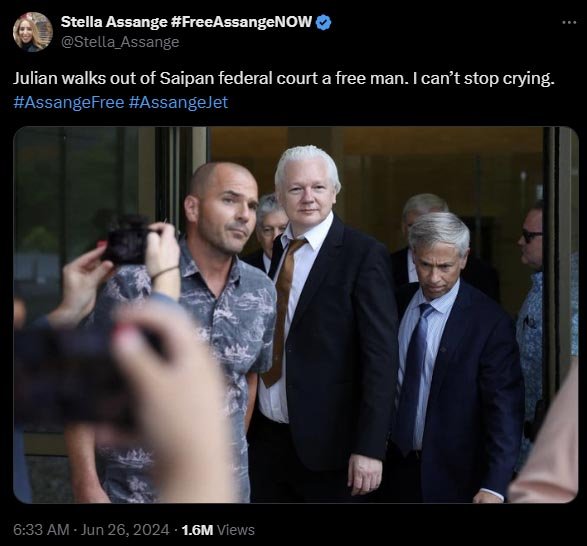
Freedom, however, came with a hefty price tag. Assange’s travel expenses amounted to $520,000, a sum he was obligated to repay to the Australian government.
This financial burden included the cost of a private charter flight from London to Saipan and then to Canberra, Australia. Commercial flights were not an option due to security concerns.
Stella Assange, Julian’s wife, launched an urgent crowdfunding campaign to raise the necessary funds.
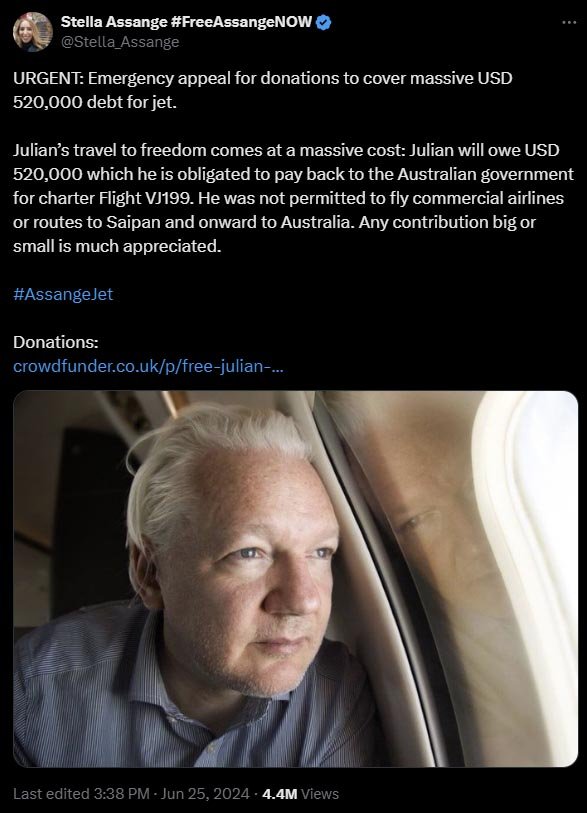
She emphasized the urgency of the situation, stating, “Julian’s travel to freedom comes at a massive cost.” The campaign quickly gained traction, with supporters from around the world contributing to the cause.
In a remarkable act of generosity, an anonymous donor contributed over 8 bitcoin, worth approximately $500,000, to cover the bulk of the travel expenses. This single donation was larger than all other contributions combined and nearly fulfilled the entire fundraising goal.
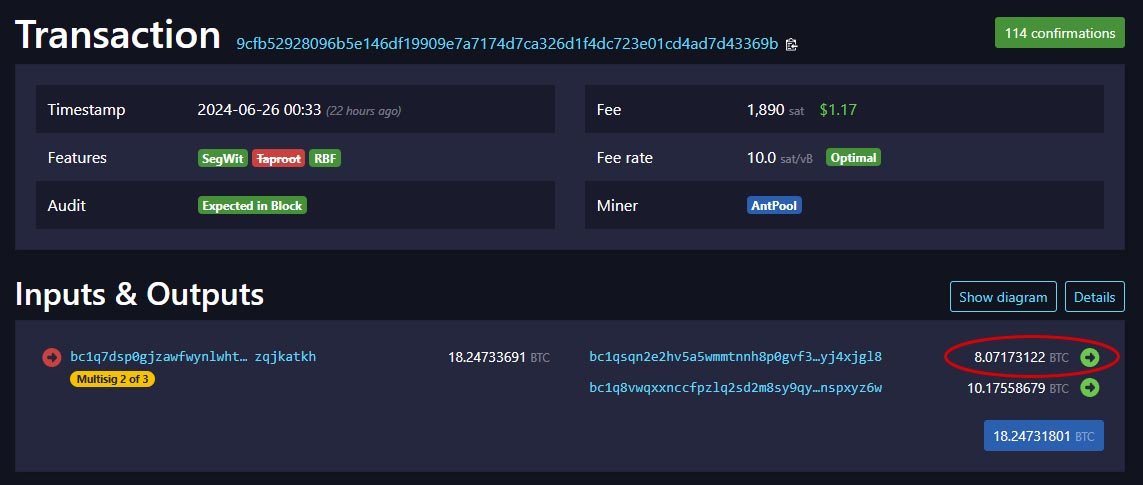
Stella Assange expressed her gratitude, noting that the donation allowed Julian to return home without the financial burden hanging over his head.
The use of Bitcoin in this instance is significant. WikiLeaks has a history with the digital asset, having started accepting bitcoin donations in 2010 after traditional payment processors like PayPal, MasterCard, and Visa blocked the organization’s access to funding services.
Julian Assange himself has been a proponent of Bitcoin, often discussing its potential to bypass traditional financial systems and support causes that might struggle to receive funding otherwise.
The anonymous bitcoin donation highlights the enduring support for Assange within the Bitcoin community.
Many Bitcoin enthusiasts view Assange’s work as crucial for transparency and freedom of information. The donation underscores Bitcoin’s role as “freedom money,” a tool for enabling uncensored free speech and financial freedom.
Related: Freedom Money, God’s Money
Gabriel Shipton, Assange’s brother, played a key role in facilitating the Bitcoin donations. He set up a payment server, allowing supporters to contribute using both on-chain Bitcoin and the Lightning Network.
This payment gateway was made possible using BTCPay Server and the Voltage app services.
This setup enabled quick and secure transactions, demonstrating the resilience and censorship-proof nature of Bitcoin. The Human Rights Foundation also utilizes BTCPay for fundraising.
Following his court appearance in Saipan, Assange boarded a private plane to Canberra, Australia. He arrived on June 26, at 09:39 UTC, and was greeted by family and supporters.
The successful fundraising campaign, bolstered by the anonymous bitcoin donation, ensured that Assange arrived in Australia debt-free.
This marked the end of a prolonged legal saga that had spanned over a decade.
Assange’s release was a momentous occasion for his supporters, who had campaigned tirelessly for his freedom.
Assange’s connection with Bitcoin is likely to continue. His family has long been involved with the digital asset. Assange himself has spoken about his fascination with Bitcoin and its potential to support transparency and freedom of information.
In a Reddit AMA, Assange reflected on his involvement with Bitcoin, saying:
“There’s lots on Bitcoin in my book – on my thoughts on it and WikiLeaks’ history with it. Eric Schmidt and I conversed for a while about it, and I also included a lot of notes to expand on my views. It’s a fascinating and complex subject, so I can’t possibly go through all of it.”
Assange also mentioned a significant return on his bitcoin investments, highlighting the digital asset’s financial potential.
As Julian Assange begins a new chapter in his life, his supporters remain hopeful for his recovery and future endeavors.
The financial support he received, particularly the substantial bitcoin donation, has alleviated a significant burden, allowing him to focus on his health and well-being after years of confinement.
The use of Bitcoin in securing Assange’s freedom is a testament to the digital asset’s power and potential. It demonstrates how Bitcoin can act as a decentralized and permissionless financial system, supporting causes that traditional institutions might shy away from.
For Assange and his supporters, this represents not just a financial victory but a symbolic one, reinforcing the ideals of transparency, freedom, and the right to information.

